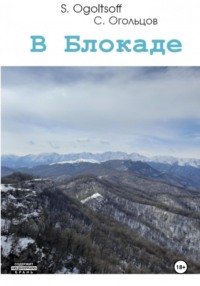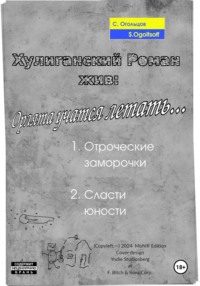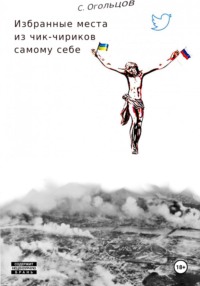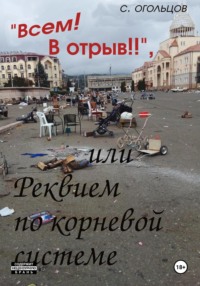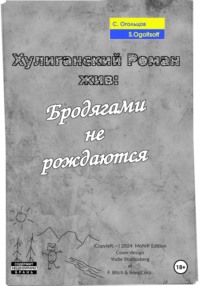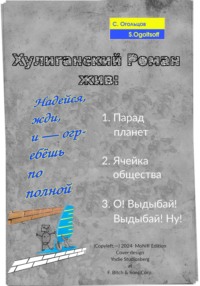
Полная версия
The Rascally Romance (in a single helluva-long letter about a flicking-short life)
But usually, I wandered there alone and almost without any purpose, well, except for hunting a Juniper to make another good bow, or collecting green Pine cones for all sorts of hand-crafted toys.
Stick 4 matches into a green cone and here you have the body of a quadruped. To the body standing on all the four, add a vertical match as the would-be neck, pierce a smaller cone and spit it with the ‘neck’ match—wow!—you’ve got a horse now! Just don’t forget to attach a tail to it.
After green cones, you have to climb up young Pine trees, whose light-brown bark peels off all too easily to smear your hands with sticky colorless resin, which a few minutes later turns into blackish spots all over your palms, while on your pants it stays as white stains, yet still as sticky as your blackened hands.
The young Pine trees are swaying with the wind and under your weight, Yea-hoo! Super whooper! And their cones are so nice: green scales pressed densely to each other, all glossy as if lacquered, quite different to the cones picked on the ground under big old trees whose cones also got old and black with their scales ruffled and sticking loosely all apart. Yet, even in big Pines, you can find green cones as well, only they’re hanging from the very tips of those boughs where you can't climb or pull and bend closer to the branch you’re sitting on because they're way too thick…
New occupations spread among boys much faster than a wildfire. As soon as one of them put his hand on some new trick, you’d hardly find the time to wink your eye but everyone already is, like a busy beaver, all in manufacturing explosives.
A land mine of delayed action you can produce just hands down. Fill a glass bottle with water, three-quarter up, and thru the bottle’s neck stuff in a wisp of grass, then pour the bluish powder of crushed carbide on top. (Carbide is stored in an iron barrel at the construction site of a five-story building across the road around Block, blackstrapper-soldiers would blink at your ladling handfuls of it into your pants pocket.) Now, seal the bottle tight with a cork whittled from a wood chip, turn the bottle upside down and insert it into some pile of earth or sand. The land mine is ready.
A word of warning!! Be cautious not to cut your fingers when whittling the cork and, secondly, when sitting on the ground and driving the cork into the charged bottle, don’t keep the bottle’s neck between your thighs because it might crack and some stray shard would cut your skin just where the shorts end, as it was in my case…
It only remains to wait until the carbide, after getting in contact with the water in the bottle, has issued too much gas for the bottle walls to hold the pressure and it explodes with a loud pop, sending sand and glass splinters in all directions.
Being a book-addict, I often failed to follow the mainstream developments in ever-changing public life…
When tired of reading, I spread the book next to a big sofa’s armrest, covers up for the seat to keep it open at the right page and ready to be read on by my return from the Courtyard. Then down I went and stepped out of the entrance door—surprise! A caravan of differently aged boys were crossing the Courtyard hauling pieces of boards, planks, beams… I ran up to ask: what’s up? how? where?
They told me to run to the construction site of the five-story building, where another group of boys still collected useful timber that a blackstrapper soldier-guard allowed to lift off. And I arrived there just in time to grab the end of a long plank, chiseled from the guard by elder boys. The soldier only said to be quick, before any one saw us.
Like a string of diligent ants, we dragged the pillage across the Courtyard and down the Gorka, then into the forest at the foot of the steep slope made of the earth chuted down by the bulldozer when leveling the ground for the skating rink.
There, between the trees, sounded hand-saws and hammers clapped in eager heat of enthusiastic labor. The bigger boys were sawing boards and nailing them to the pillars piled into the ground.
With the trained eye of a Construction Modeling Designer, I at a glance saw that it was a shed without any windows and with one, already hinged up, door. Inside, there stood a wooden ladder leaned on the wall beneath the square hatch in the ceiling of long boards. Up I climbed and out onto the flat roof and, at the same time, ceiling of the structure.
A couple of bigger boys were there discussing whether the roof was strong enough and reassuring one another that the shed would serve the headquarters for boys from our Block and not from the twin one.
I asked for a chance to work with a handsaw or hammer, but neither of them gave me his, and they even ordered me to go down and not strain the yielding roof by my additional weight.
I climbed down the ladder. In the half-dark shed and around it, there stayed no one of my peers, and going home to the book waiting for me upon the big sofa, I felt happy that the boys of our Block would have Headquarters of their own, like Timur and his team from the book by Gaidar…
Later, when wandering in the forest, I never missed to check the shed, but nobody was there, and a big padlock hung on its door. The autumn came, a stack of hay appeared next to the shed, and a team of chicken migrated to it thru the square hen-way, sawed out in the bottom of the door. The Headquarters were obviously canceled…
~ ~ ~
Dad had a hair cutting machine— a nickel-plated critter with two horns or, rather, they were two slender handles. Dad grabbed them both by one hand and put the machine in motion by squeezing and loosening his grip on the handles.
On the haircut day, my brother and I were seated, in turn, in the middle of the kitchen on a stool placed upon a chair, so that we would sit higher and Dad wouldn’t have to stoop down to us.
Mom tightly wound a white bedsheet around the neck of her son—whose turn it was—and fixed it with a clothespin. Then she held a large square mirror in front of the brothers, in turn, while sharing her advice to Dad, who waved her words off with only his nose because his right hand was grabbing the machine while his left hand held the customer’s head and steered it from side to side, from down to back. And even his jaw was busily moving from side to side repeating the movements of the machine’s cutting part.
At times the machine did not cut the hair but pulled at it and that hurt. When that happened, Dad gave out an angry snort and vigorously blew into the machine's underbelly before going on with his work.
Once, the blowing didn’t restrain the critter, it still pulled at the hair and Sasha started to cry. Since that day, we visited the hairdresser salon not only before school was starting after the vacations, but whenever Mom decided that we already got too shaggy….
Photography Dad learned himself from a thick book. His FED-2 camera was fixed inside its brown leather case with a narrow shoulder strap, also of leather. For shooting, you had to unbutton the case from behind, drop the case’s pug-nosed face to dangle under the camera, take pictures and buckle it back.
Unscrewing and taking the camera out of the case was done after its counter indicated 36 clicks which meant there remained no space for another frame and it’s time to replace the film cassette.
The film from the used cassette should be rewound with proper precautions ensuring complete darkness, onto a loose spool in a small round cistern of black plastic with the tightly fitting lid, in which container the film was treated with the developer solution poured inside thru the light-proof hole in the spool’s knob which stuck out thru the lid.
After rotating the spool with the loosely wound film on it for five minutes, the solution was poured out of the cistern, the film washed with freshwater and then treated with rotation in the fixing solution followed by one more washing out. For drying, the film was pinned on a rope just like a usual laundry. But if before the final washing, the film got awkwardly exposed to the tiniest beam of light, it got spoiled and instead of frames, you’d have just a glittering black ribbon of a film, a throwaway.
When there collected several developed films, Dad arranged a photo lab in the bathroom. He covered the bath with two deal shields made for the purpose. They served as the desktop upon which he put the photo-projector with its downward-looking lens. In the photo lab, Dad used a special red lamp, because of photo paper’s exceeding sensitivity, and only the red light didn’t damage it.
The projector was also equipped with a movable light filter of red glass, right beneath the lens, so that light-sensitive photo paper would not become a throwaway while you’re adjusting the image sharpness with the lens.
All frames in the film were negative—black faces with white lips and eye sockets, and the hair whiter than snow. After adjusting the sharpness, the red filter was turned aside so that the crude light from the projector would pour thru the film frame onto the paper, while Dad counted down the seconds needed for exposure and then returned the filter back into its place.
Then the completely white sheet of photo paper was taken from under the projector and put into a small rectangular basin filled with the developer solution, which sat next to the red light lamp whose glowing couldn’t disperse black darkness in the room and only turned it into a sorcerer’s chamber. Under the dim light of the red lantern, commenced the magic in the plastic basin and, on a clean white sheet, there gradually appeared clothes, hair, facial features.
Yet, pictures should not stay in the developer for too long, or their paper would turn into black wet squares. The rightly developed pictures were taken out with the pincers, rinsed in freshwater, and placed in the next small basin with the fixer, otherwise, they would blacken all the same; then, after five to ten minutes, the ready pictures were transferred into a large enamel washing tub filled with water.
When the printing was over, Dad turned on the light in the bathroom, the charmer’s chamber disappeared, giving way to a small workshop. Dad took the wet pictures from the basin, put them face down on Plexiglas sheets and ran rubber roller over their backs so that they stuck well.
Those glasses he leaned against the wall in the parents’ room, and the following day the dried-up photos fell off the glass to strew the floor, like the leaves from the trees in autumn only white-backed, smooth, and glossy.
…here am I with round eyes and the neck bandaged because of a sore throat …
…brother Sasha looking so credulously into the camera …
…Mom alone, or with her friends, or with the neighbors …
…and that is Natasha with her nose up in the air, and the eyes on something else happening to the right, and the ribbon tie in her pig-tail got undone as always…
Besides photography, Dad also was a radio fan, that’s why he subscribed to The Radio magazine full of all kinds of charts.
I liked the smell of melted rosin in the kitchen when he worked with his soldering iron, collecting this or that scheme from The Radio. Once, he assembled a radio receiver a sliver larger than the FED-2 camera case. At first, it was a thin brown board with radio parts soldered to it, then he made a small box of plywood, polished it and varnished, and hid the board inside. There were just two knobs outside the box: one for adjusting the volume and the other for tuning to a radio station. Then he sewed the case for the receiver from thin leather, because he could work with the awl and knew how to alter a common thread into stitching one by twining it and applying wax and pitch. Finally, he attached a narrow shoulder strap to the case so that you could carry it and still have your hands free.
Later on, Dad made a special machine fixed on a stool to do bookbinding, and bound his The Radio magazines into volumes, one for each year. He had just golden hands.
And Mom, of course, had golden hands too because she cooked tasty meals, sewed with her Singer machine, and once a week did general washing in the washing machine “Oka”. At times, she trusted me with squeezing water out of the washing by turning the crank of the wringer fixed on top of the machine. You stick a corner of a washed thing in between its rubber rollers and when you start turning the crank, the washing is pulled thru the wringer, which squeezes brooks of water back into the machine basin. And the thing crawls out behind the rollers thinly pressed and wrung out.
But hanging the washing was a job for adults because there were no linen ropes in the Courtyard and everyone dried their washing in the attic of their house. Only Dad could lift the heavy basin with half-wet things up the vertical iron ladder and thru the hatch above the landing.
However, with his strong, golden, hands, he once created a long-term problem for himself. It’s when he made a “bug” inside the electric meter, so that it would not rotate, even with all the lights on and the washing machine buzzing busily in the bathroom.
Dad said it reduced the bills for electricity, but he feared very much that the controllers would catch us “bugging” and punish with a big fine. Why create so much worries for yourself because of saving on bills?
As for Mom, she never did unreasonable things, except for those yellow corduroy shorts with suspenders, that she sewed for me in the kindergarten. Oh, how I hated them! And, as it turned out, not for naught – in those hateful shorts I was when the red cannibal ants molested me so severely…
~ ~ ~
At one of my solo forest walks, I went out into a glade and felt there was something not quite right, yet what namely? Aha! It's the thin smoke that never belonged to the usual woodland picture. And then I saw flames, almost transparent in the sunlight, fluttering, charring the bark of trees and creeping over the thick carpet of dry Pine needles on the ground. So, it’s the forest fire!
At first, I tried to trample out the flames on the needles, but it did not work. Yet, a small Juniper with multiple dense twigs severed from its roots turned the right thing for quenching the underfoot flames and was efficiently killing the fire on trees trunks.
After the tiresome fight and glorious victory, the burnt area turned out not enormously big, about ten to ten meters. My shirt and hands bore smudges of black soot, yet I didn’t mind because the battle dirt is not dirty. I even ran my sooty hand over my face to ensure it got smeared too so that everyone could see at once – here’s the hero who saved the forest from the death in the great fire.
Unfortunately, I met no one on the way home. Walking the empty trail, I dreamed of being written about in The Pioneer Pravda, where they published an article about a pioneer who signaled with his red tie to the locomotive driver about the damaged railway ahead.
And only entering the Courtyard, I met, at last, two passers-by. They looked at me alertly but none of them asked, “Where does this black soot in your face come from? It looks like you've been fighting a forest fire, have you?”
At home, Mom yelled at me for going around so dirty, and no washing machine would do to keep my shirts clean. I felt unjustly hurt but suffered silently…
On summer evenings, the children of Block and mothers of those kids, who as of yet were to be looked after, went out of the Courtyard onto the surrounding road of concrete. Everyone was waiting for the platoon from the Recruit Depot Barracks to come up to the road for their usual drilling promenade.
Reaching the concrete surface of the road, the soldiers started to march in parade step. As if in a magic transformation, they seemed to merge into a tight-knit united critter—a closed squad—that had one mutual leg comprising the entire length of the marching flank, the leg fused of dozens of black boots that simultaneously broke away from the road and fell down one step farther, advancing the whole formation for that one step. It looked so fascinating a creature!
Then the sergeant-major tagging with by the squad’s side abruptly shouted, “Sing off!” And from the midst of the compact mass, throbbing in time to the mutual “plonk!” of the boot soles against the concrete, a young vibrating tenor rose solo to be followed a few steps farther by the thunder of the supporting chorus:
“…we are the paratroopers,the wide sky is all for us…The squad went on and on to the corner of the next block with its inhabitants waiting for it to march by them too, and some children from ours followed it as a running tail, while the young mothers looked in the wake of the soldiers marching to the sun half-sunk in the woods, pervading with its parting rays the evening wrapped into the calm, all-embracing serenity because we were the strongest, and so safely protected by our paratroopers against all the NATO spies in the anteroom to the Detachment’s Library…
~ ~ ~
They brought long iron pipes into the Courtyard. When you hit such a pipe with a stick, it rang loudly and longly… Much longer, actually, than needed and for all my effort I could never play the drum roll with which the Whites marched to their “psychic” attack against Anka and her machine gun in the movie “Chapaev”. Day after day, coming from school, I tried, again and again, filling the whole Courtyard with ding and dong, yet in vain, it sounded nothing like that roll.
The pipes were buried all too soon and my musical self-education interrupted, but the blocks on the Gorka got furnished with gas. They installed the gas stove in the kitchen and hung the white box in the wall above the sink to light the gas on when heating water to wash up or take a bath. Titan the Boiler disappeared from the bathroom, and firewood was needed no more, our basement section with Dad’s workshop became roomier…
One day in early summer, when the parents were at work, I came down to our basement section and took away Dad’s big ax, because I and some other boy wanted to build a fire in the forest.
We descended into the thicket behind the Bugorok-Knoll and started climbing up the next, lower, hill. On the steep slope, there stood a small Fir-tree no taller than a meter and a half. And from the moment of entering the forest with the ax in my hands, I had had an itch to put it to use. Now, there it stood before me the one-and-a-half-meter tall opportunity. A couple of blows and the Fir-tree dropped on the slope…
I was standing next to it, unable to grasp— what for? You couldn’t use it for making a bow, nor even for a mock-up Kalashnikov gun to play War-Mommy. Why did I kill the Fir so aimlessly?
I no longer wanted to build any fire nor have a walk. All I needed was to get rid of the ax, the accomplice in my cruel barbarity. I took it back to the basement section, and from that time walked the woods unarmed…
(…see? What a lovably prissy boy! Yet, the core in this pathetic self-praise thru self-chastening is true to life. However, don’t run over yourself to list your Daddy among the good guys because I am too unstable for that. One day I might be as tenderhearted as you can wish, but the following one… well, I don’t know…
When my bachnagh (this term in Karabakh Armenian means “husband of a sister-in-law”) was getting ready for the wedding of his eldest daughter, the relatives helped out with anything they could. Not with money though, because he wouldn’t accept it— the expenses for such an occasion are born by the happy father. That’s the tradition.
The acceptable assistance comprises, mainly, cookery work. While the staple set of wedding chow at the city House of Celebrations is paid in cash, the standard snacks might be diversified by additional courses cooked by aunts, grandmothers, mothers, sisters, daughters of the immediate and distant relatives. Kinship, aka clan relations, is verily alive and kicking in Karabakh. The culinary help in wedding preparations is a sort of love labor performed using the products purchased by the celebration organizer.
However, certain products call for preliminary treatment, and you can’t but agree that slaughtering a dozen chickens on the balcony in a five-story apartment-block is a way more toilsome undertaking, than executing it at a private, albeit still under construction, house. That’s why the chickens were brought to me.
They dumped them in the vast unfinished hallway and left, busy with innumerable other wedding-preparation chores. Jedem – seiner, quoting a popular German saying.
So, those fifteen living creatures lie in dust on the ground with their legs tied, and I am towering over them with a freshly whetted knife in my hand and all of us are fully aware of what for.
Fifteen are not a single one and there is a definite deadline when distaff clan members will come to pluck the initially processed products clean of their feathers. But each of the would-be products, while alive, has its own coloring and age, its personal point of view on what is happening, its individual reserve of energy, which determines the loudness of protestations as well as the protraction of the flutter with the already chopped off head.
You can’t do such a job without being methodical. So I turned into a robot methodically repeating a set of the same movements… fifteen times…
Sometimes, I looked thru the window-opening, still lacking its frame, at a white fluffy cloud high in the blue sky… So clean… Immaculate cumulous curls…
Just so a robot with a kinda sentimental wrinkle in its program.
Since that time, my attitude to executioners has somehow changed. Probably, I understood that nothing in their nature was outside me…
Well, in a nutshell, at that wedding I was a vegetarian.
Coming back to the assertion that in the case of the Fir-tree killing the weight of guilt was on the ax, who pressed me into the destruction of the innocent plant, then there’s nothing new about it, “I was carrying out the orders…”
A commonplace low-grade zombie-simulation…)
~ ~ ~
In the fifth grade, instead of just one Mistress, we had separate teachers for different subjects because our elementary education was over.
The new Class Mistress' name was Makarenko Lyubov … er… Alexeevna?…Antonovna?…I don’t remember her patronymic. Between us, we called her just “Makar”, yes, checks with the handle of the most popular army pistol of 12 charges.
“Atas! Makar is coming!” (In the school lingo "atas!" meant “beware!”)
But all that came later, and for the first time, I met the would-be Class Mistress the day before school, when Mom brought me there to copy the curriculum and get acquainted with my new Class Mistress.
Makarenko asked me to help her about the class wall newspaper on a big sheet of Whatman paper, which had to be adorned with a frame for which there already was the mark of a pencil line five-centimeter offset from the edges. She gave me a brush and a box of watercolors and warned to use only the blue one before going out together with my Mom to further improve on their acquaintance.
Proud of being trusted with so important a job, I started immediately, dipped the brush in the glass of water, dampened the blue and began to paint the strip of the Whatman paper between its edge and the pencil mark, trying not to trespass it. The job turned out an up-hill one – you paint, and paint, and paint but there still remains so much to paint yet. The main problem though was that each watercolor stroke differed from others by its shade of blue, making it hard to keep the uniformly. I persevered in earnest because not every day a boy gets a chance of making frames on a sheet of Whatman. However, by the return of Mom and Mistress, I had only finished about a quarter of the frame.
The teacher said at once that was enough, even more than that because all she had wanted of me was just passing the brush along the pencil line, but now it’s too late. Mom promised to bring a sheet of Whatman paper from her work, but the teacher said “no-no!” Then I came up with a proposal to mount strips of paper on glue over the superfluously painted areas, but the idea was also turned down, I didn’t know why.
We left, and Mom did not rebuke me on our way home for it was not my fault if the new teacher had never in her life seen sturdy frames of plywood, but only those of thin lines as around the words of Marx and Lenin in the Regiment Club…


